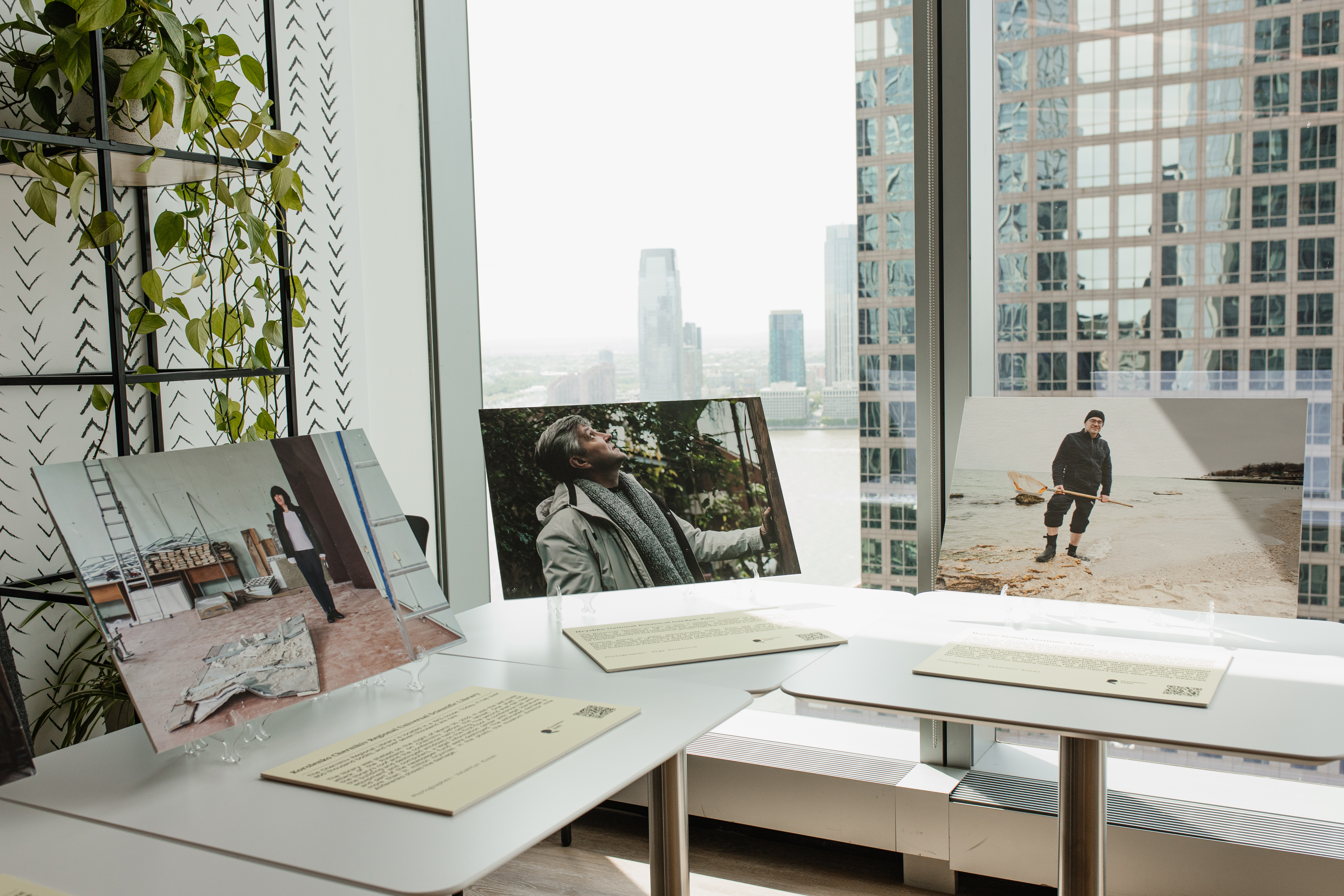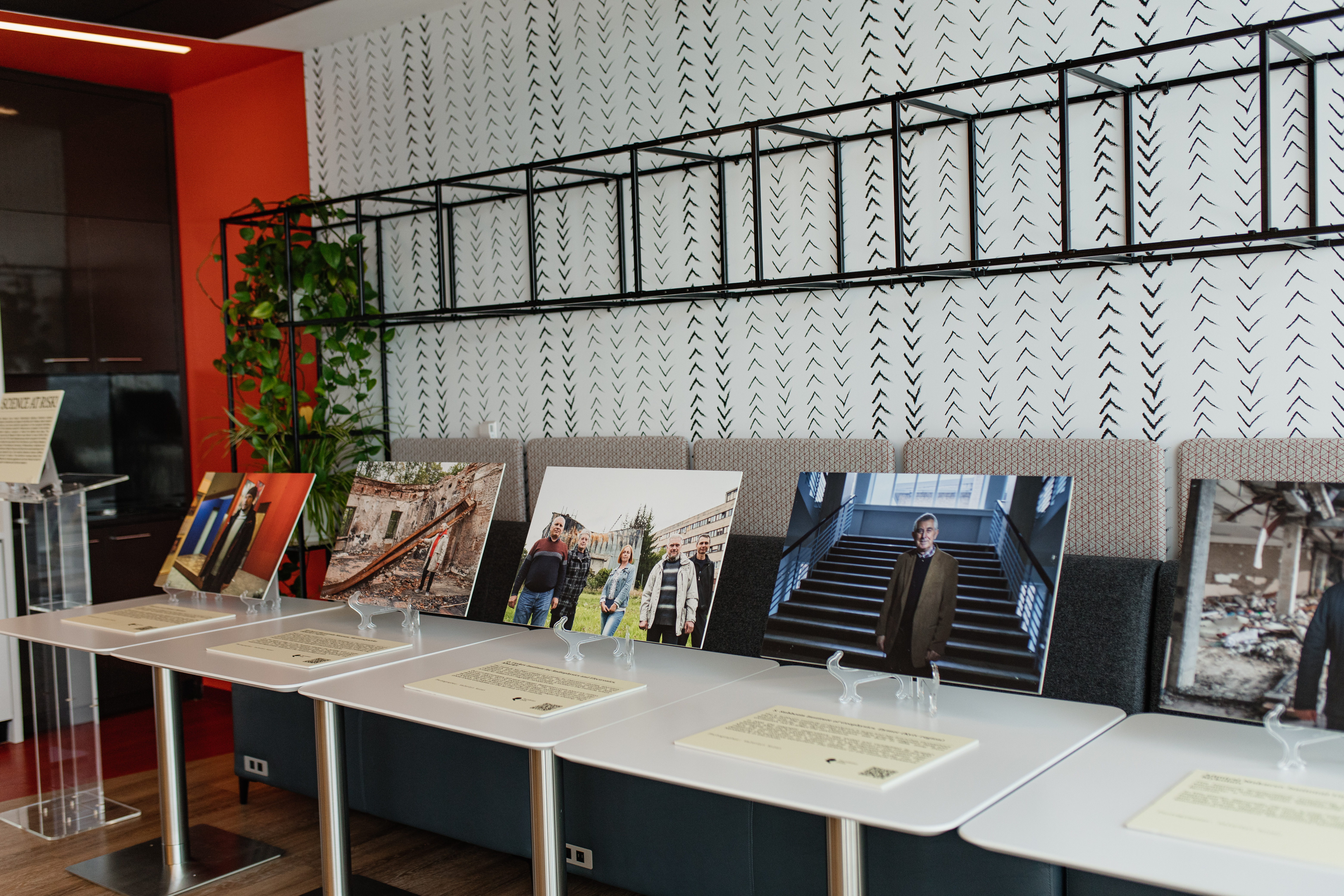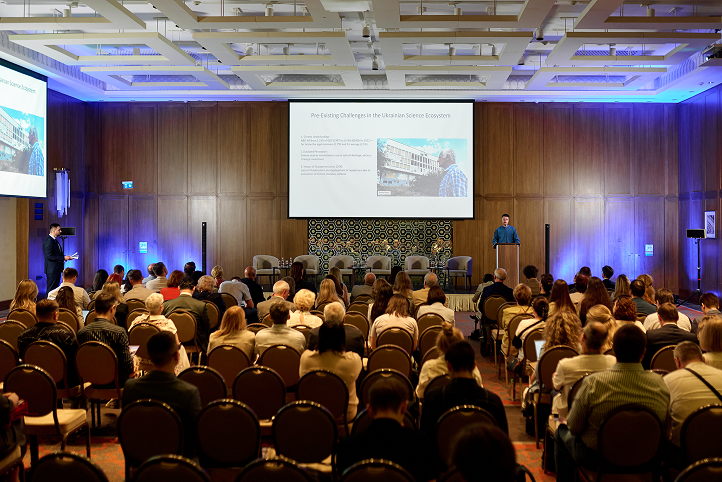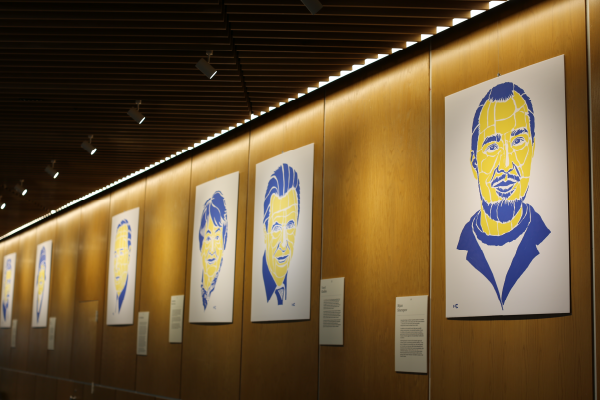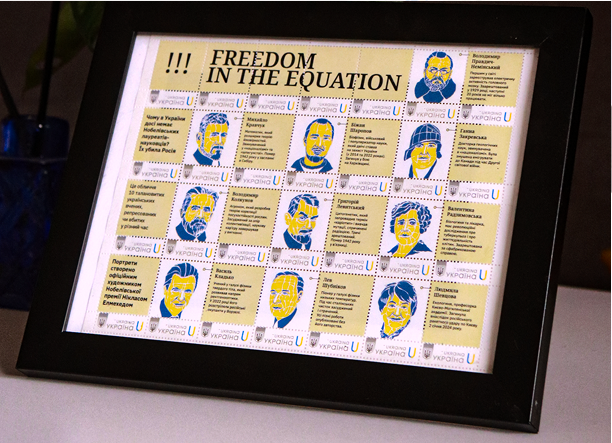
Presentation of the Science at Risk platform in New York
22.06.23
Presentation of the Science at Risk platform in New York: international collaboration for the preservation and restoration of science
Russia's war against Ukraine is existential for the entire state and, therefore, for Ukrainian science, one of the main targets of Kremlin aggression. Russia destroys scientific institutions, occupies them, and mines them. Ukrainian scientists are forced to work in challenging conditions. Therefore, international support is a critical component of Ukraine's victory. In all spheres, it enhances our ability to resist destructive force and helps to maintain resilience: whether military, economic, or scientific. The Science at Risk project was launched to improve cooperation between Ukrainian and world scientists, document Russia's crimes against Ukrainian science, and develop effective methods for its preservation. It was presented on May 19, 2023, at the One World Trade Center in New York.
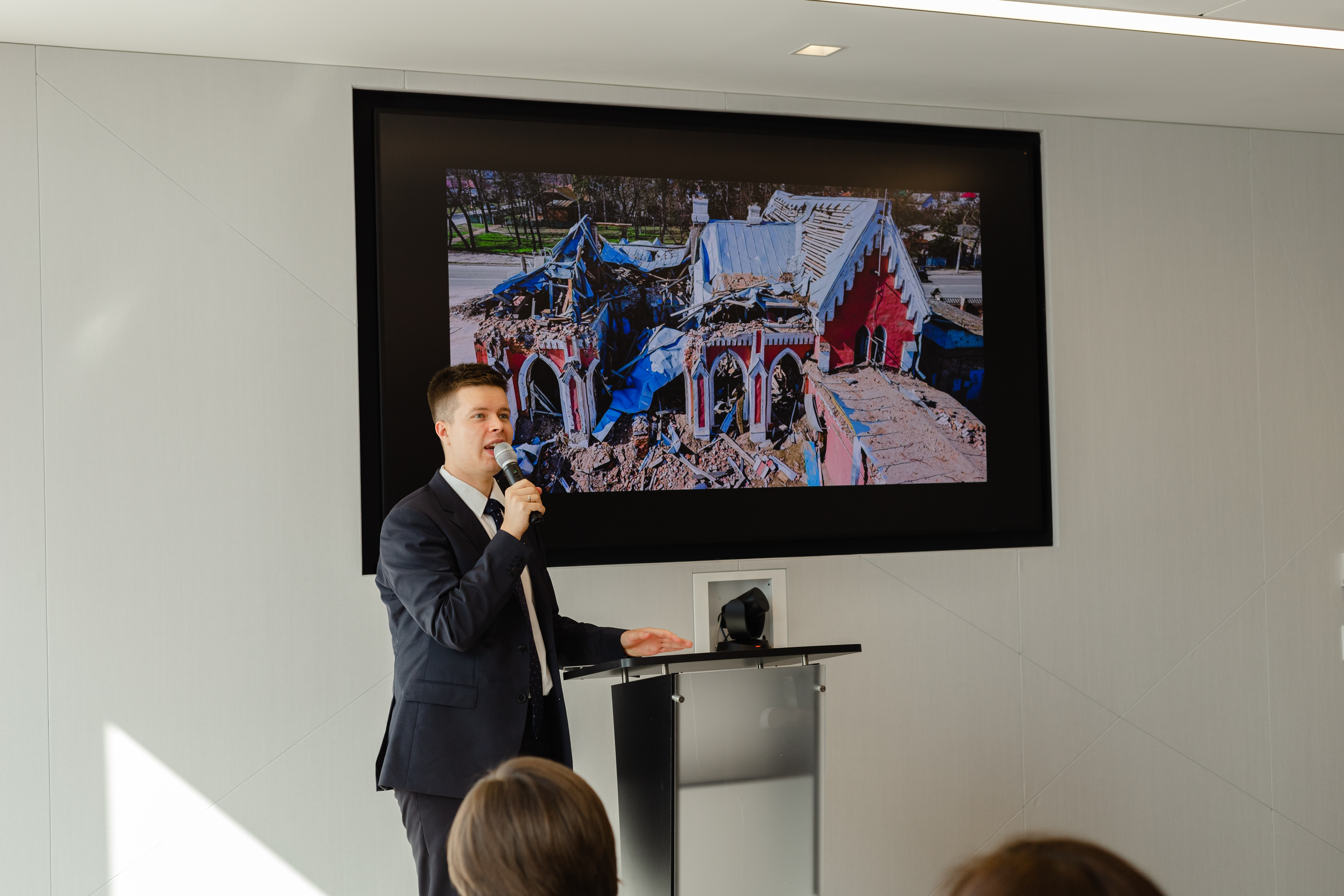
Science at Risk is a community and web platform that will help popularize the expertise of Ukrainian scientists, find international partners and donors, and tell the stories of Ukrainian scientists during the war to a broad audience.

Within the platform, Ukrainian scientists work in expert groups that analyze the situation in the country and look for solutions to both urgent and long-term problems.
The Deputy Permanent Representative of Ukraine to the UN, Khrystyna Hayovyshyn, noted at the event that the Kremlin's goal is to root out everything Ukrainian, and Ukrainian science is one of their targets. "he 91 of Ukraine's 300 research and higher education institutes have been damaged," said Gabriela Ramos, Assistant Director-General for Social and Human Sciences at UNESCO. Dozens more scientific institutions were or still are under occupation. And in the territories the Russians are leaving, scientific institutions are left without equipment or museum collections.
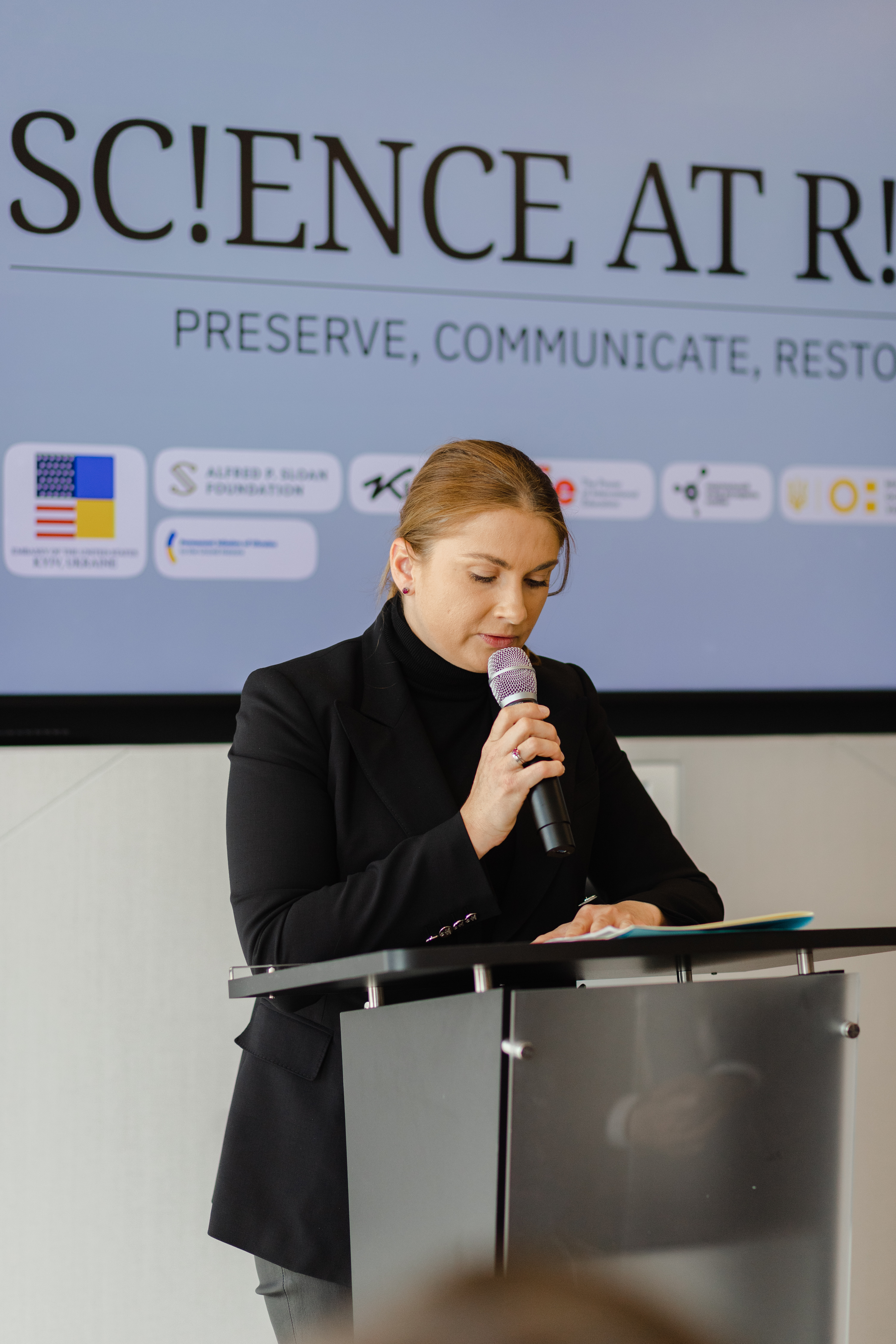
Therefore, as Khrystyna Hayovyshyn explains, "It is one of our key priorities to preserve the research infrastructure, including historical cultural and museum heritage archives, collections, and other vital resources that form the backbone of our scientific community".
At the same time, she noted that the experience of Ukrainian scientists would be necessary to the global community.
Khrystyna Hayovyshyn
This statement was echoed by Sarah Wilcox, deputy director of the Scholars at Risk project. She emphasized the importance of creating a community capable of responding quickly to crises around the world.
Sarah Wilcox
Doron Weber, Vice President of the Alfred P. Sloan Foundation, stressed that stories unite people on an emotional level.
Doron Weber
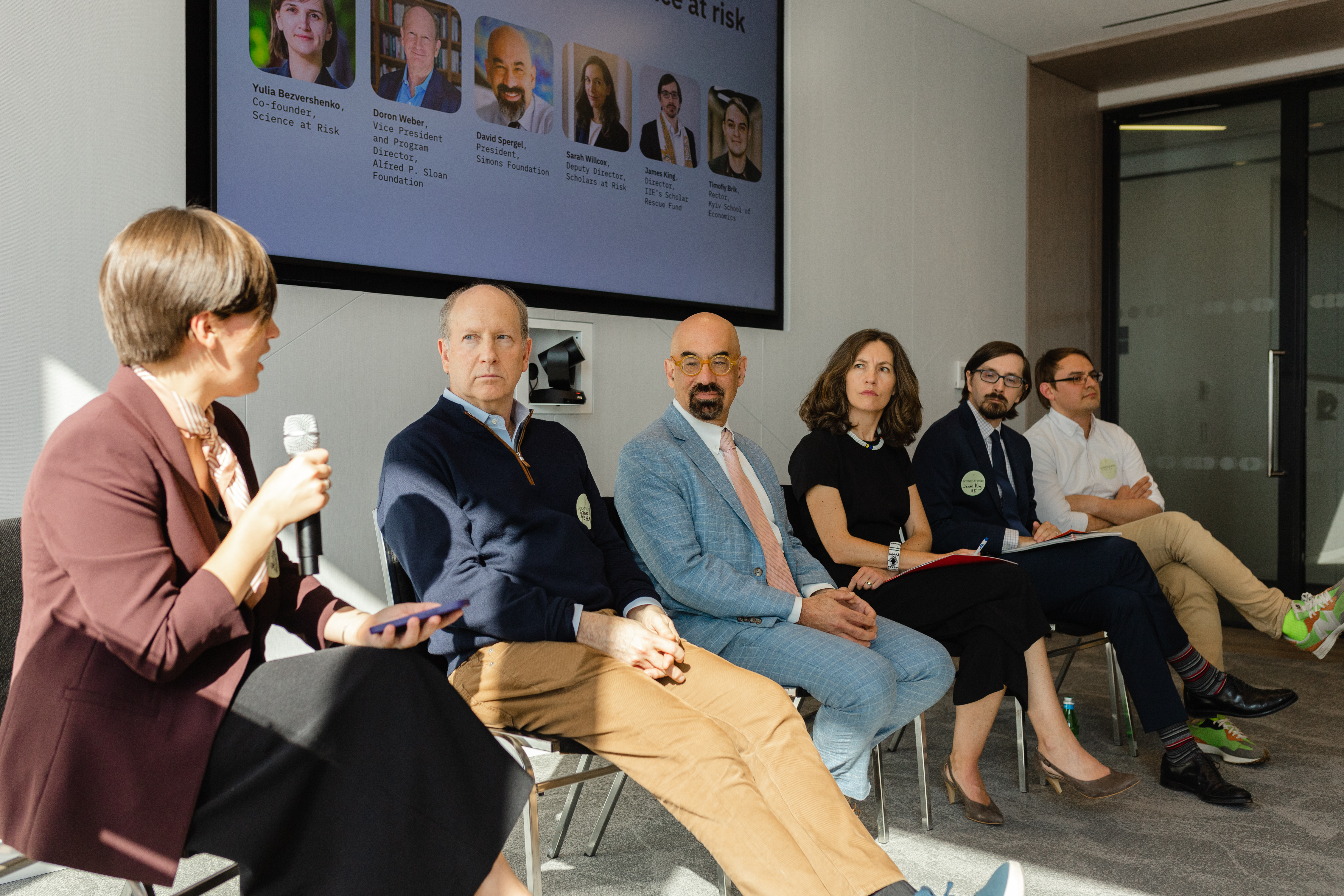
Ukrainians not only have to defend their own sovereignty but also preserve and restore it right now. Science at Risk is the first step towards this goal.
The project is supported by the Press, Education, and Culture Department of the U.S. Embassy in Ukraine, Alfred P. Sloan Foundation, Ministry of Education and Science of Ukraine and National Research Foundation. ZMIN Foundation has supported the event in NYC. The project is implemented by the NGO Kunsht.
